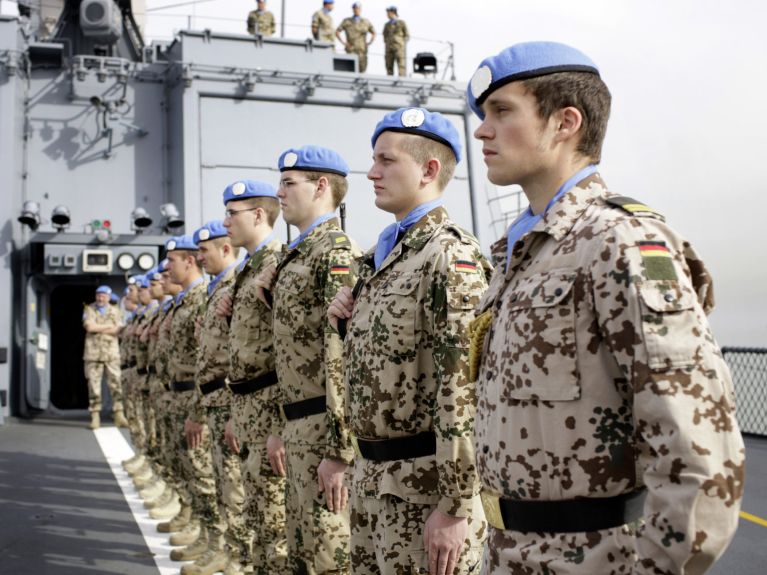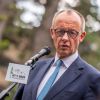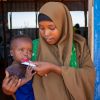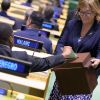UN Security Council: Germany wants to accept responsibility
With clear goals and the desire to promote reforms, Germany is once more applying for a non-permanent seat on the Security Council for the 2027/28 term.
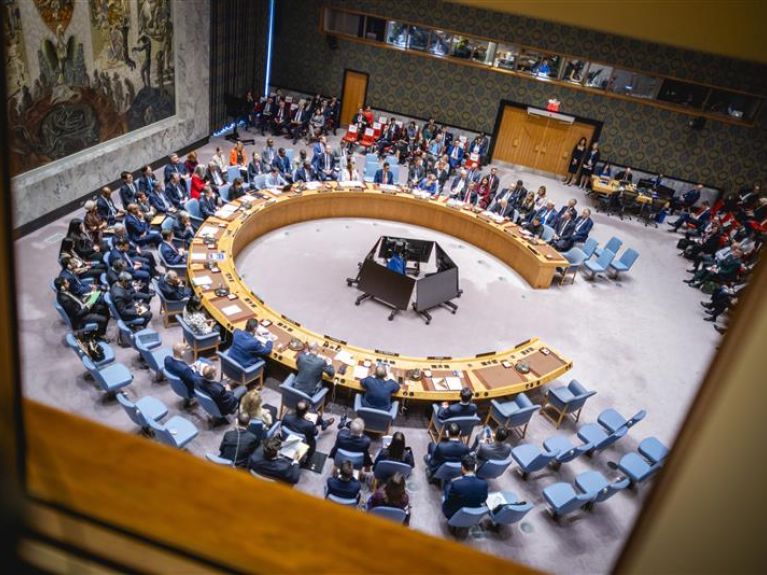
The Security Council is the central decision-making organ of the United Nations: its where peacekeeping missions are approved, sanctions are imposed and important resolutions are adopted. Germany has not been part of the committee since the 2019/20 term and would like to get involved again. The elections for the 2027/28 term are held in June 2026. The Federal Government thinks of Germany’s application as the country’s signal that it would like to take responsibility in an increasingly destabilised world.
Reliable supporter of multilateralism
During a meeting with UN Secretary-General António Guterres in Berlin, Federal Chancellor Friedrich Merz stressed that: “Particularly in times of countless crises, Germany remains a reliable partner and anchor for the multilateral system. We are doing this because we believe in the United Nations. We think of this as an investment in a world order based on justice and the rule of law rather than the rule of the strongest.”
Germany’s application for a non-permanent seat on the Security Council is also characterised by this attitude. Based on the latest figures, more than five billion euros from the federal budget are earmarked for the UN’s work that includes peacekeeping missions, humanitarian assistance and development cooperation. Germany is among the countries paying the highest contributions and has been involved in various programmes to promote security, education and human rights for more than 50 years.
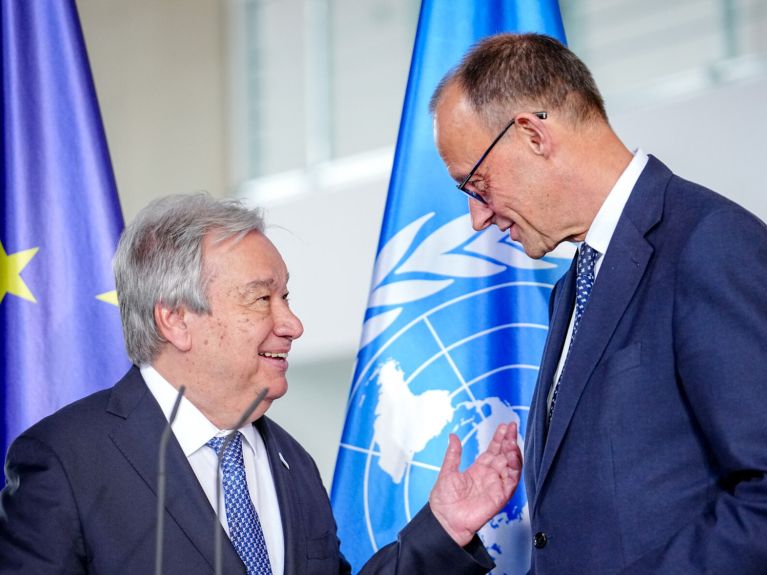
Need for reforms and clear goals
Foreign Minister Johann Wadephul believes that the candidacy also signals a new start. At the UN General Assembly in September 2025 Wadephul said that 80 years after its foundation the UN faced “major challenges: a budget crisis, a crisis in multilateralism, and a lack of respect for international law”. He pointed out that all member states were obligated to safeguard the principles of the UN Charter.
“We need for the United Nations to be effective and capable more than ever before,” Wadephul stated, adding that the Security Council had to reflect the real world more accurately through additional permanent and non-permanent seats, in particular for underrepresented regions in Africa, Asia and Latin America. The Foreign Minister listed three central goals for Germany’s candidacy: “Justice, peace and respect.” Wadephul confidently continued by saying: “We belong at this table. We are willing to accept responsibility. We believe in the United Nations’ system.”
Germany is competing with Austria and Portugal in the election. The two countries have also been highlighting their tradition of peacekeeping and multilateralism. Nevertheless, with its long-standing commitment, Security Council experience, as well as its economic and political influence, Germany does, without a doubt, bring some persuasive arguments to the table.
